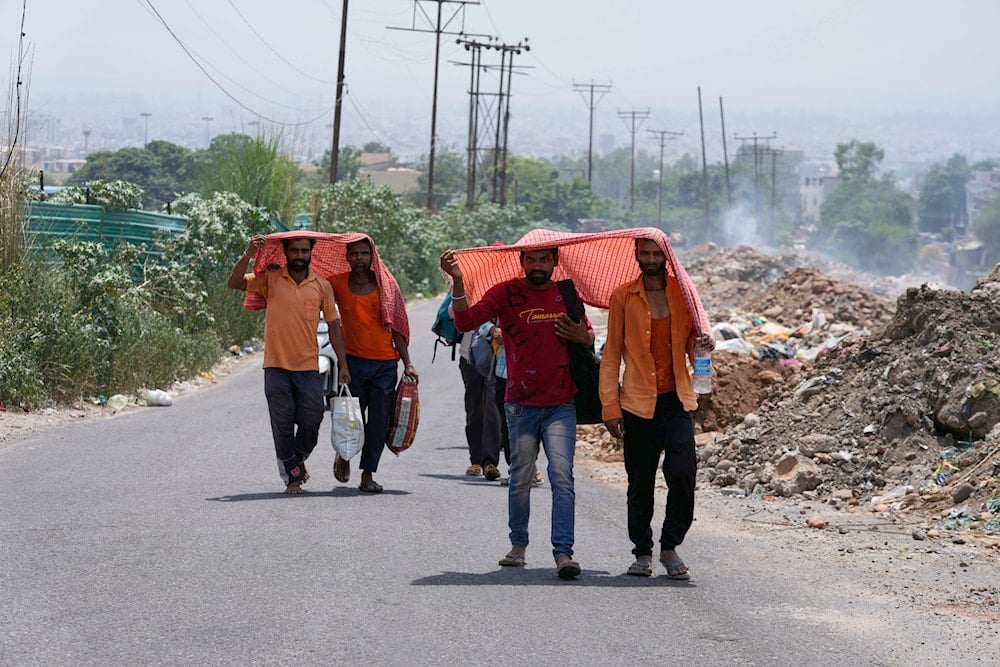UN warns of urgent need to shield workers from heat
The UN urges immediate global action to protect workers from the rising health risks of extreme heat, which is being worsened by climate change.
-

People cover their heads with scarves to protect themselves from the harsh sun on a hot summer day in Jammu, India, Tuesday, June 10, 2025. (AP)
The United Nations declared on Friday that governments and employers must act urgently to safeguard the health of workers facing increasing exposure to extreme heat.
The agencies said that workers worldwide are already experiencing the health impacts of heatwaves, which are becoming more common and intense due to climate change, a situation addressed in their "much-needed" major update to a report and guidance last published in 1969.
The report stated that worker productivity drops by 2-3% for every degree above 20°C and that half the world's population already suffers adverse consequences from high temperatures, including health risks identified by the World Health Organization and the World Meteorological Organization, such as heatstroke, dehydration, kidney dysfunction, and neurological disorders.
They added that manual workers in sectors like agriculture, construction, and fisheries, along with vulnerable populations such as children and older adults in developing countries, were particularly at risk.
"Protection of workers from extreme heat is not just a health imperative but an economic necessity," WMO Deputy Secretary-General Ko Barret stated. In response, the agencies called for the development of heat action plans that are tailored to specific regions and industries and are created in collaboration with workers, employers, unions, and public health experts.
The agencies noted that while unions in some countries have pushed for maximum legal working temperatures, an option they acknowledged, such limits would likely differ globally depending on the specific context. The agencies also called for better education on heat stress for both workers and first responders, since heat stress is a widely misdiagnosed issue.
Ahead of the report’s release at a press conference, Rüdiger Krech, director ad interim for environment, climate change, and health at the WHO, stated, "No one should have to risk kidney failure or collapse just to earn a living."

 2 Min Read
2 Min Read











